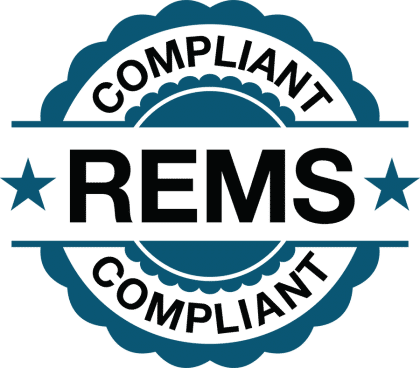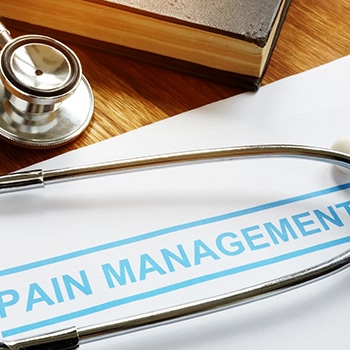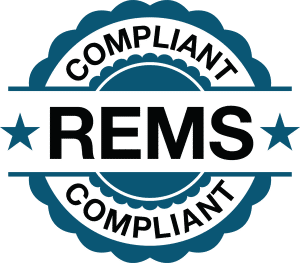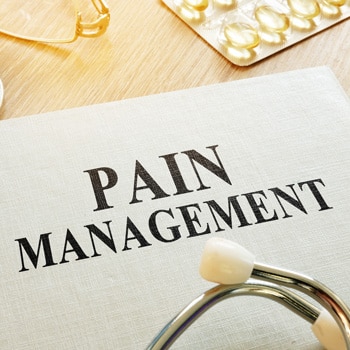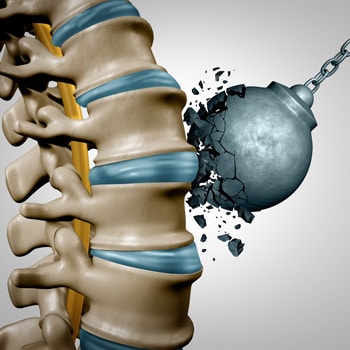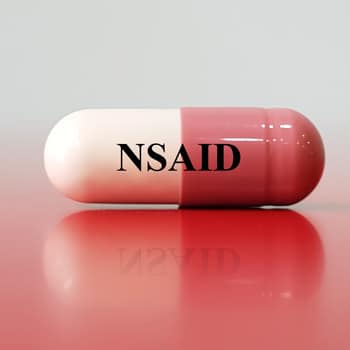Opioid Continuing Education for Nurse Practitioners
 This Opioid Education Hub is dedicated to the educational needs of nursing health care providers and their patients. Nurses and nurse practitioners are important stakeholders in responsible prescribing of opioids and compassionately meeting the needs of patients in pain. Key impact areas include taking a detailed history and assessing risk associated with family history of substance use, psychiatry illness, and history of sexual trauma or abuse. For individuals prescribed opioids, follow-up, monitoring, and referral to a pain specialist or for further follow-up if there is reason to believe an opioid use disorder has developed is essential. As with any chronic disease, evidence-based pain management must be central to nursing practice. Finally, as frontline health care provider, patient education about their medicine, safe disposal of opioids, and protections against diversion are best practices for patient care.
This Opioid Education Hub is dedicated to the educational needs of nursing health care providers and their patients. Nurses and nurse practitioners are important stakeholders in responsible prescribing of opioids and compassionately meeting the needs of patients in pain. Key impact areas include taking a detailed history and assessing risk associated with family history of substance use, psychiatry illness, and history of sexual trauma or abuse. For individuals prescribed opioids, follow-up, monitoring, and referral to a pain specialist or for further follow-up if there is reason to believe an opioid use disorder has developed is essential. As with any chronic disease, evidence-based pain management must be central to nursing practice. Finally, as frontline health care provider, patient education about their medicine, safe disposal of opioids, and protections against diversion are best practices for patient care.
A Way Forward: How Naloxone Saves Lives from Opioid Overdose
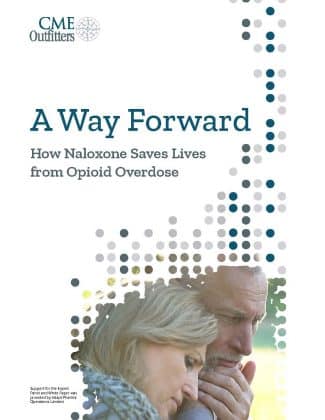 Increasing access to naloxone is essential to reducing overdose mortality. Strategies for increasing access must be thoughtfully developed and deployed to ensure that naloxone is available to any at-risk individual—whether that be an individual with chronic pain or someone with a substance use disorder—without the burden of stigma or judgement. CMEO convened an expert panel led by Dr. Mark Gold to discuss barriers and opportunities for distribution of naloxone to those at risk for overdose in the community. This white paper, A Way Forward: How Naloxone Saves Lives from Opioid Overdose reviews the data used by the panelists to establish their positions and recommendations for the way forward.
Increasing access to naloxone is essential to reducing overdose mortality. Strategies for increasing access must be thoughtfully developed and deployed to ensure that naloxone is available to any at-risk individual—whether that be an individual with chronic pain or someone with a substance use disorder—without the burden of stigma or judgement. CMEO convened an expert panel led by Dr. Mark Gold to discuss barriers and opportunities for distribution of naloxone to those at risk for overdose in the community. This white paper, A Way Forward: How Naloxone Saves Lives from Opioid Overdose reviews the data used by the panelists to establish their positions and recommendations for the way forward.
Jump to:
Live & On-Demand Webcasts CMEO Snacks CMEO BriefCases CMEOCast Resources
Animations Understanding Addiction Naloxone Toolkit Drugs of Abuse Blog
Specialty Opioid Education Hubs

Resources
- OTC Analgesics for the Management of Acute Pain: Clinical Experience in the Era of the Opioid Crisis
- Adult Dosing Chart
- Understanding Your Drug Facts Labels
- Taking an OTC NSAID
- Taking Prescription Acetaminophen
- How to Properly Dispose of Your Unused Medicines
- List of Medicines Recommended for Flushing
- Controlled Substance Public Disposal Locations
- Do Your Health Conditions Affect Your OTC Pain Reliever Choice?
Resources for Teens and College Students
Teens
College Students
Animations
Understanding Addiction
 The Addiction Policy Forum is a nationwide nonprofit organization dedicated to eliminating addiction as a major health problem. Our national headquarters are located in Washington, DC with resources and services in every state.
The Addiction Policy Forum is a nationwide nonprofit organization dedicated to eliminating addiction as a major health problem. Our national headquarters are located in Washington, DC with resources and services in every state.
Why are Drugs So Hard to Quit?

The Disease Model of Addiction

Naloxone Toolkit
Naloxone Administration

Naloxone Facts

Addiction & the Brain



